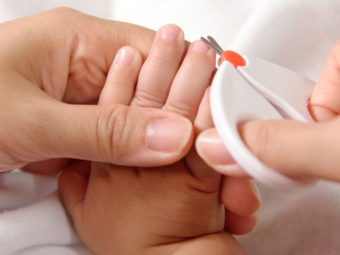
Image: Shutterstock
Potatoes are a favorite vegetable among most of us. We love this starchy food. It doesn’t matter if it’s potato chips, french fries, or if you bake them. They are everyone’s favorite snack to binge on. For all those potato lovers out there, this study might come as a big disappointment. It links women who ate a potato-rich diet before pregnancy to gestational diabetes mellitus (GDM)(1).
Potatoes And Diabetes Risk
A study which was conducted over a 10-year period suggests that eating a potato-rich diet may increase the risk of gestational diabetes mellitus. Over this period, 21,693 singleton pregnancies were documented where 854 women were affected by GDM. The study took into account the risk factors associated with GDM like BMI, race, family history, smoking, alcohol consumption, age, and physical activity. It states that substituting 2 servings of potatoes with the below foods reduced the risk of gestational diabetes:
- 9% lower risk for other vegetables
- 10% lower risk for legumes
- 12% lower risk for whole grain foods(2)
After rice and wheat, potatoes are the most commonly consumed food in the world. About 35% of women in the United States who are of the reproductive age, i.e., 19-50 consume potatoes daily. It accounts for about 8% of daily energy intake. They are a rich source of potassium, vitamin C, dietary fiber, and some phytochemicals. Unlike this spud, the other vegetables can have adverse effects on glucose metabolism because of the large amounts of rapidly absorbable starch in them. There are also numerous studies linking higher consumption of potatoes to a greater risk of type 2 diabetes mellitus, insulin resistance and increased concentration of fasting plasma glucose(3).
What Is Gestational Diabetes Mellitus?
GDM is a condition where there is higher glucose content in the blood. GDM is a complication that occurs during pregnancy(4). It is not caused by lack of insulin, unlike type 1 diabetes. It happens when a hormone produced during pregnancy prevents your body from using insulin effectively. In the United States, approximately 3-8% of pregnant women are diagnosed with GDM(5).
Other Risk Factors
Though any woman can develop GDM, some women are at greater risk(6).
- Women who are overweight
- Women who have a family history of diabetes
- Women who are older than 25 years
- Women of the non-white race
- Women who have given birth to a baby weighing more than 9 pounds
- Women who have impaired glucose tolerance
Symptoms Of Gestational Diabetes
GDM doesn’t show any symptoms in most cases. But if you feel more thirsty or have an urge to urinate more than usual, it can be gestational diabetes. Since the symptoms are not always noticeable, it is important to get screened for it during your pregnancy period, i.e., between 24thand 28thweeks(7).
Diagnosis
Gestational diabetes is diagnosed by conducting blood tests. As mentioned earlier, it is conducted between 24thand 28thweeks of pregnancy, but your doctor may decide to screen you earlier if you have risk factors(8).
Diet To Follow If You Have Gestational Diabetes
Having a good meal plan can help you keep your blood sugar levels normal(9).
- Eat a wide variety of foods.
- Divide your food into smaller portions throughout the day instead of having 3 large meals
- Limit sugary foods and drinks
- 吃丰富的食物fiber, like fresh fruits and vegetables, and whole grains
- Avoid skipping meals as it can fluctuate your blood sugar levels
It is a good idea to consult a nutritionist to help you design a detailed meal plan based on your preferences.
Although there isn’t enough evidence to support the association of eating a potato-rich diet and gestational diabetes, it is always better to play it safe if there’s a baby on the way. And if you have been diagnosed with GDM, try to maintain a healthy weight and follow a good meal plan during your pregnancy.



















